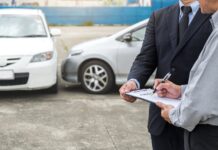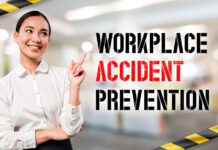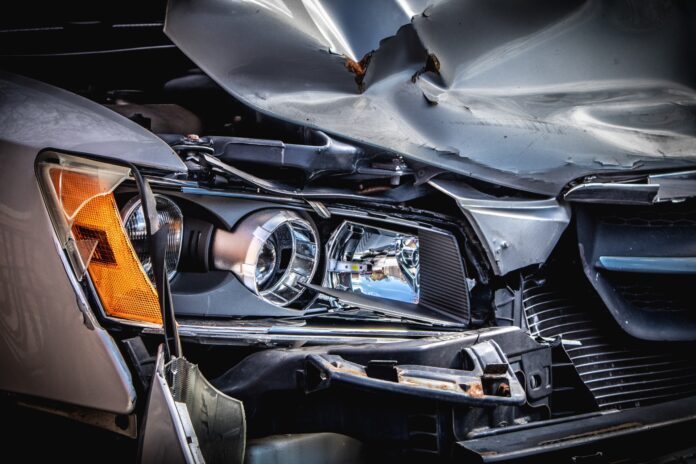
If you’re in a car accident with someone else and they’re at-fault, then you file a claim with their insurance in many cases.
In some states, however, where there are no-fault laws, all registered vehicle owners have to show proof of personal injury protection (PIP) and property damage liability insurance. According to Marcus Viles of the legal firm Viles& Beckman, this insurance comes into play no matter who’s at fault for an accident, thus the term no-fault.
If you’re injured in an accident in a no-fault state, you rely on your own PIP to pay your medical bills.
Motorcyclists in Florida don’t have to have PIP, but if they do have that coverage and they’re in an accident, they can use it for their medical bills.
If someone in Florida is seriously injured, they can go outside the no-fault system.
In these situations, in many cases, unless you have serious injuries, it doesn’t matter who’s at fault.
- What about fault states, however?
- What happens if you’re in a single-vehicle accident?
The following are some of the things to know.
What are the Possible Outcomes?
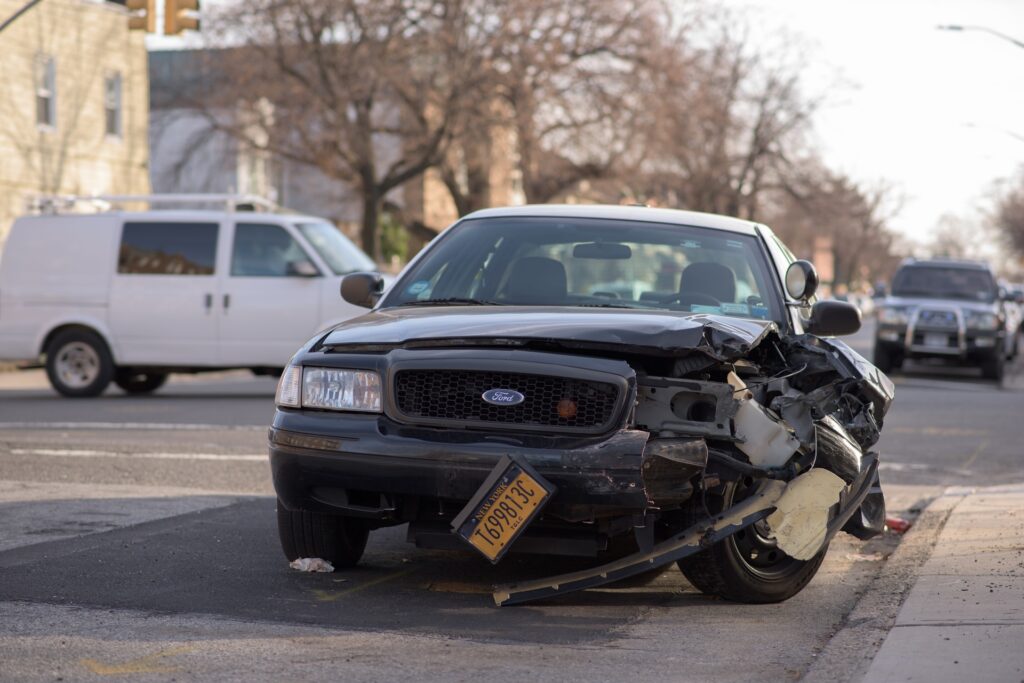
If you are in a single-vehicle accident, meaning it only involves you and your car, there are different potential outcomes. These vary based on the situation and also the state where you live.
First, you could get a traffic ticket if you violate any state law which was part of your accident.
You can also receive points on your license.
If you’ve damaged someone else’s property, even though it wasn’t a vehicle, they might turn to your insurance for recovery.
If you have personal injury protection insurance, you can file a claim to recover damages.
If you don’t have insurance to cover it, you may have to pay your own losses and medical bills. In some states, like Nevada, under the law, accident victims can only recover from others when another party is the cause of their injuries.
In some serious situations, you could face criminal charges which are different from a traffic citation.
For example, if you were driving recklessly or driving under the influence when you were in a single-vehicle accident, you might face criminal charges.
Are There Situations You Might Not Be Liable?
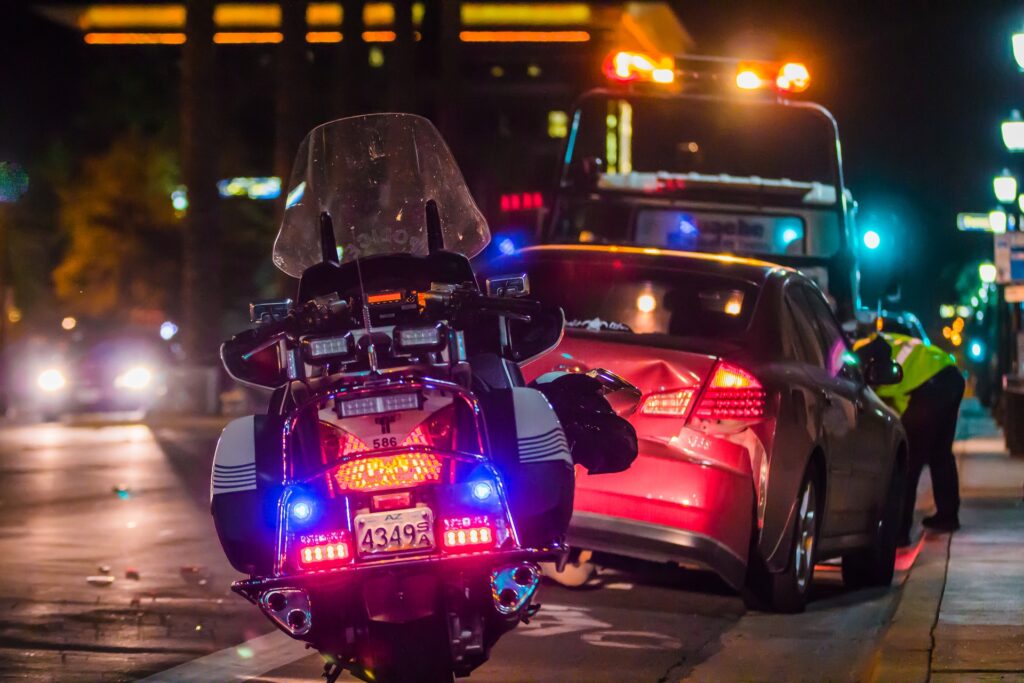
As you would naturally assume when only one car is involved in an accident, it’s almost always going to be the driver’s fault, but there are a few exceptions.
One example might be if you lose control of your vehicle because of the dangerous condition of a roadway or highway. Then, you hit a tree or guardrail. In that case, you might not be at-fault in the accident.
While that is true, making a claim that poor road conditions caused a car accident can be challenging. For example, if the roadway conditions were as bad as you are claiming, then the argument could be made that you should have driven more carefully or slowly.
A giant pothole coming out of nowhere, of course, would likely negate the argument you should have been more careful.
Vehicle defects or equipment failure are other scenarios where a driver might not be found liable for a single-vehicle accident.
To avoid liability in this situation, the failure or defect of the vehicle would have to be unexpected and occur suddenly. If there’s evidence you held off on fixing a mechanical issue or there’s an active recall on your vehicle, then you would still likely be liable. As a reasonable driver, you would have theoretically corrected the problem instead of continuing to drive the vehicle.
Paying Out of Pocket

In many cases, with single-vehicle crashes or accidents, it may end up being wiser to just pay out of pocket. If you aren’t seriously hurt and there’s not a ton of damage to your vehicle, this may be the better path.
For example, let’s say you were driving, and a branch fell and hit your car. It cracked your windshield. This type of claim would go through your comprehensive or collision insurance. Both types of coverage have deductibles ranging from $50 up to thousands of dollars. You might find that the cost to repair minor damage in a single-vehicle accident is less than your deductible.
If you file a claim, there’s also the chance your insurance company will raise your premiums.
If you think paying out-of-pocket to repair the damage is the right choice for you, ensure that the estimate for the damage costs is accurate. You can’t go back and file a claim later on if you find out the costs to repair the damage will actually be more than what you thought.
Insurance companies require you to submit a claim and report an accident within a certain period of time.
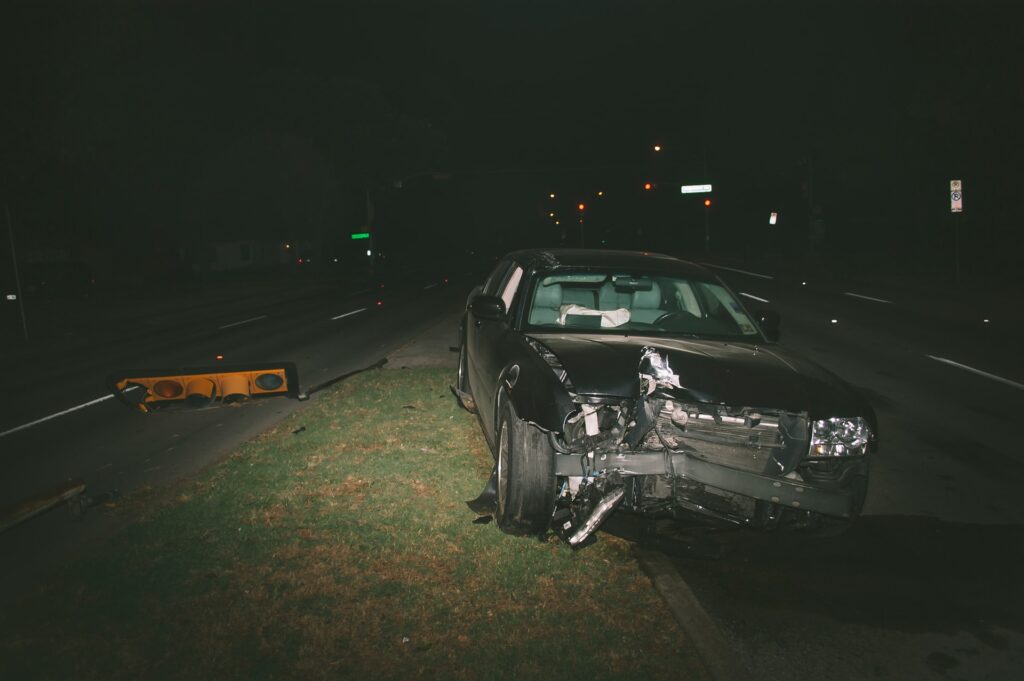
If no one is injured, you’re the only person involved, and you can pay the medical bills if a minor injury does arise, then you don’t have to report an accident.
If you’re in an accident with damage that will be expensive to repair, whether the accident is which single-vehicle or involves multiple cars, you have to report it to your insurance company.
If you, for example, hit the side of a building but no one is hurt, report it to your insurance company. There’s a high likelihood that someone is going to seek payment for that via your insurance company.
The short answer to the question of who pays in a single-vehicle crash is ultimate that it depends.
Depending on your state, your PIP coverage might pay. In other instances, other areas of your insurance coverage might pay, but then you have to meet your deductibles and your premiums are likely to rise.
If the situation is very minor and you can cover the costs of the damage out-of-pocket, you might do that rather than reporting to your insurance. Just make sure that you’re not going to run into more expenses down the road.

